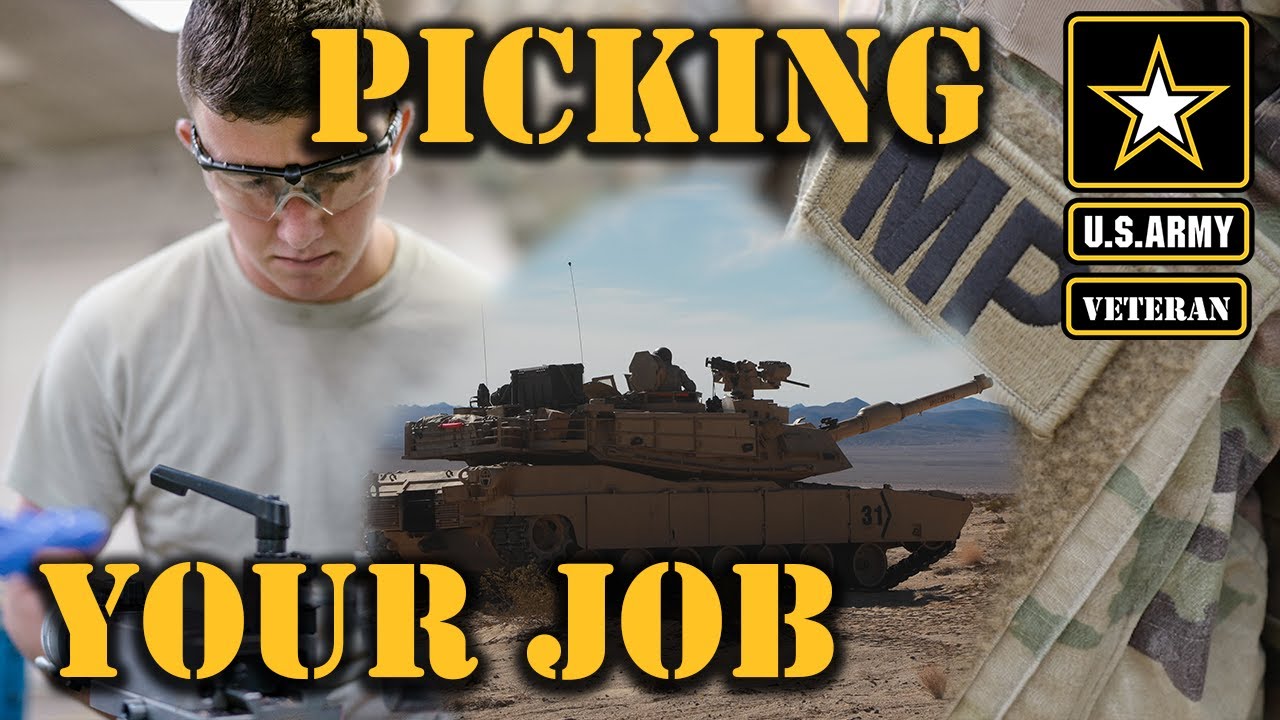Choosing a careerpath is a significant decision that shapes one's future and overall satisfaction in life. Among the myriad options available, the military, government, and technical sectors stand out as compelling career paths. However, is military/government/technical a good career path?These fields offer unique opportunities for personal growth, job security, and societal impact.
What Should I Know Before Joining The Military?

Consider These Things Before Joining The Military.
Joining the military is a significant commitment that requires careful consideration. Here are some key points to know before embarking on a military career:
- Service Commitment -Military service typically involves a significant time commitment, ranging from a few years to several decades, depending on the branch and type of service. Understand the obligations and duration of service required before making a decision.
- Physical and Mental Demands -Military service can be physically and mentally demanding. It involves rigorous training, physical fitness requirements, and the potential for deployment in challenging and high-stress environments. Be prepared to meet these demands and assess your own physical and mental readiness.
- Job Specializations -The military offers a wide range of job specializations across various fields, from combat roles to technical and administrative positions. Research and explore different career options to find a role that aligns with your interests, skills, and long-term goals.
- Potential Risks -Military service inherently involves certain risks and dangers, particularly in combat or hazardous situations. Familiarize yourself with the potential risks associated with the branch and role you are considering and evaluate your comfort level with them.
- Lifestyle and Personal Sacrifices -Military life often entails significant lifestyle adjustments, including frequent relocations, separation from family and friends, and adherence to strict discipline and regulations. Consider the impact these changes may have on your personal life and relationships.
Military Career
- Sense of Purpose -Military service offers a unique opportunity to serve your country and make a meaningful impact in defending national interests and ensuring the safety of citizens.
- Training and Skill Development -The military provides extensive training, which equips individuals with valuable skills such as leadership, teamwork, discipline, and technical expertise that can be beneficial both during and after their service.
- Job Security and Benefits -Military careers often provide job security, comprehensive benefits, including healthcare, retirement plans, housing allowances, educational opportunities, and a sense of camaraderie among fellow service members.
Government Career
- Public Service - Working in the government sector allows individuals to contribute to the betterment of society, serve the public, and make a positive impact on the community or nation.
- Job Stability -Government jobs often offer stability and long-term career prospects. These positions provide essential services that are unlikely to be significantly affected by economic fluctuations.
- Opportunities for Growth -Government organizations offer diverse roles and departments, providing opportunities for career progression, professional development, and the ability to specialize in areas aligned with personal interests and expertise.
Technical Career
- Demand and Job Market -Technical fields, such as software development, engineering, or data analysis, are in high demand. Pursuing a technical career provides excellent job prospects, competitive salaries, and opportunities for growth in a technologically-driven world.
- Continuous Learning and Innovation -The technical field is dynamic, requiring individuals to stay updated with the latest advancements. Technical careers offer opportunities for continuous learning, innovation, and the ability to work on cutting-edge projects that shape the future.
- Creativity and Problem-Solving- Technical careers involve creative problem-solving, critical thinking, and the opportunity to contribute to innovative solutions that address real-world challenges.
22 Best Paying Jobs In Military/Government/Technical | High Paying Jobs

Best Military Jobs: 9 great MOS options for wealth and happiness (that transfer to civilian jobs)
Here is a list of 22 high-paying jobs in the military, government, and technical sectors along with their approximate salary ranges:
- Chief of Staff (Military)- $150,000 to $250,000 per year
- Vice Admiral (Military)- $140,000 to $250,000 per year
- Surgeon General (Military)- $120,000 to $250,000 per year
- Chief Information Officer (Government)- $110,000 to $220,000 per year
- Director of National Intelligence (Government)- $110,000 to $200,000 per year
- Chief Technology Officer(Government)- $100,000 to $200,000 per year
- Chief Financial Officer (Government)- $100,000 to $190,000 per year
- Senior Executive Service (Government)- $90,000 to $180,000 per year
- Director of Engineering (Technical)- $90,000 to $180,000 per year
- Chief Data Scientist (Technical)- $90,000 to $170,000 per year
- Senior Research Scientist (Technical)- $90,000 to $160,000 per year
- Chief Architect (Technical)- $90,000 to $160,000 per year
- Director of Cybersecurity (Technical)- $80,000 to $160,000 per year
- Chief Operations Officer (Government)- $80,000 to $150,000 per year
- Chief Scientist (Government)- $80,000 to $150,000 per year
- Director of Strategic Planning (Government)- $80,000 to $150,000 per year
- Aerospace Engineer (Technical)- $70,000 to $150,000 per year
- Cryptologist (Military)- $70,000 to $140,000 per year
- Intelligence Analyst (Government)- $70,000 to $130,000 per year
- Systems Engineer (Technical)- $70,000 to $130,000 per year
- Nuclear Physicist (Technical)- $70,000 to $120,000 per year
- Robotics Engineer (Technical)- $70,000 to $120,000 per year
Please note that these salary ranges are approximate and can vary depending on factors such as rank, years of experience, location, and level of responsibility. It's important to research specific job positions and consult official military, government, or industry salary resources for more accurate and up-to-date salary information.
Education And Certification Requirements For A Career In Military/Government/Technical
Military Career
- Education -The educational requirements for a military career vary depending on the branch and specific job. Some roles may require a high school diploma or equivalent, while others may require a bachelor's degree or higher. Officers typically need a bachelor's degree.
- Certification -Military roles often require the completion of specific training programs and certifications that are relevant to the chosen field or specialty.
Government Career
- Education -The educational requirements for government careers can vary widely depending on the role and agency. Some positions may require a high school diploma or equivalent, while others may necessitate a bachelor's or advanced degree in a specific field.
- Certification -Depending on the role, specific certifications or licenses may be required. For example, in areas such as law enforcement or cybersecurity, certifications like Certified Public Manager (CPM) or Certified Information Systems Security Professional (CISSP) may be beneficial.
Technical Career
- Education -Technical careers typically require a solid educational background in a relevant field. This may involve a bachelor's degree or higher in disciplines such as computer science, engineering, mathematics, or other technical areas.
- Certification -Depending on the specific technical field, there may be industry-recognized certifications that can enhance job prospects and demonstrate proficiency. Examples include certifications like Cisco Certified Network Associate (CCNA), Microsoft Certified Solutions Associate (MCSA), or Project Management Professional (PMP).
The minimum requirements to join the military can vary based on the branch and specific role. Here are some general requirements:
- Age - Typically, individuals must be at least 17 years old (with parental consent) to join the military. The maximum age limit varies by branch.
- Citizenship -Generally, applicants must be citizens or legal permanent residents of the country in which they are seeking to join the military.
- Education -Most branches of the military require at least a high school diploma or equivalent. Some specialized positions or officer roles may require a higher level of education.
- Physical Fitness -Applicants must meet certain physical fitness standards to be eligible for military service. This includes passing a physical fitness test and meeting specific height and weight requirements.
- Background Check -A thorough background check is conducted, including criminal records, medical history, and drug screening.
While the specific skills required depend on the chosen military role, there are some key skills that are generally valuable in a military career:
- Physical Fitness -Military service often requires physical endurance, strength, and agility. Maintaining good physical fitness is crucial.
- Discipline and Resilience -The military requires individuals to be disciplined, adaptable, and resilient in the face of challenges and demanding situations.
- Teamwork and Communication -The ability to work effectively in a team and communicate clearly is essential for military operations and collaboration.
- Leadership -Developing leadership skills is important for advancement in the military, as individuals may be entrusted with leading and managing teams.
- Technical Skills -Depending on the role, technical skills such as operating specialized equipment, understanding computer systems, or mechanical aptitude may be necessary.
What Are The Disadvantage Of Joining The Military?

5 LEGIT Reasons NOT To Join The Army/Military
While joining the military can offer numerous benefits, it is important to consider the potential disadvantages. Here are some disadvantages that individuals may encounter when joining the military:
- Physical and Mental Demands -Military service often involves physically and mentally challenging conditions. The rigorous training, long hours, and demanding environments can put significant strain on individuals, leading to fatigue, stress, and potential health issues.
- Frequent Relocations -Military personnel may be required to relocate frequently, both domestically and internationally. This can disrupt personal relationships, make it challenging to establish a stable home life and create difficulties in maintaining connections with friends and family.
- Deployment and Separation -Military service can involve lengthy deployments away from home, often in high-stress and dangerous environments. Extended separation from loved ones can be emotionally challenging for both service members and their families.
- Limited Personal Freedom -Joining the military means adhering to strict rules, regulations, and codes of conduct. Personal freedoms and individual choices may be restricted, as military personnel must prioritize their commitment to duty and the needs of the military over personal desires.
- Inherent Risks -Military service can involve exposure to inherent risks, especially in combat or hazardous situations. There is a potential for injury, physical harm, or even loss of life. These risks may vary depending on the branch and specific role.
- Bureaucratic Structure -The military operates within a hierarchical and bureaucratic structure. This can result in a slower decision-making process and limited autonomy in certain aspects of the job.
- Limited Job Flexibility -While the military offers a variety of roles and specialties, once a specific career path is chosen, transitioning to another field may be challenging. The skills acquired in the military may not always directly translate to civilian job opportunities, leading to limited flexibility in career options.
- Limited Control over Assignments -Military personnel typically have limited control over their assignments and deployments. They may be assigned to locations or duties that do not align with their personal preferences or long-term career goals.
It is crucial to thoroughly research and consider these potential disadvantages before making a decision to join the military. It is recommended to speak with current or former military personnel, consult with military recruiters, and gather as much information as possible to make an informed choice.
Types Of Career In Military

How to decide what job to do in the Army
The military offers a wide range of career opportunities across various branches and specialties. Here are some common types of careers in the military:
- Combat Arms -These careers involve direct engagement with the enemy in combat situations. Examples include infantry soldiers, artillery operators, tank crew members, and special forces personnel.
- Engineering and Technical -Military engineers and technical specialists play a vital role in constructing, maintaining, and repairing infrastructure, equipment, and systems. This category includes roles such as combat engineers, military intelligence analysts, and cybersecurity specialists.
- Healthcare and Medical -Military healthcare professionals provide medical services to military personnel and their families. Careers in this field include doctors, nurses, dentists, medical technicians, and psychologists.
- Aviation -Military aviation careers encompass piloting and maintaining aircraft for various purposes, including combat operations, reconnaissance, transport, and search and rescue. Roles include fighter pilots, helicopter pilots, aircraft mechanics, and air traffic controllers.
- Logistics and Supply Chain -Military logistics specialists ensure the efficient movement and supply of equipment, personnel, and resources. They manage inventory, transportation, and distribution. Careers in this field include logistics officers, supply chain managers, and transportation specialists.
- Administration and Support -These careers involve providing administrative, clerical, and support services to the military. Examples include human resources specialists, finance officers, legal professionals, and administrative assistants.
- Intelligence and Analysis -Military intelligence professionals gather and analyze information to support military operations and decision-making. They work with classified information, assess threats, and develop strategies. Careers in this field include intelligence analysts, cryptologic linguists, and signals intelligence operators.
- Special Forces -Special Forces personnel undergo extensive training and specialize in unconventional warfare, counterterrorism, and specialized missions. Examples include Navy SEALs, Army Rangers, and Air Force Pararescuemen.
- Communication and Information Technology -Military communication specialists maintain and operate communication networks, cybersecurity systems, and information technology infrastructure. Roles include network administrators, radio operators, and cybersecurity technicians.
- Legal and Military Police -Military legal professionals provide legal advice, support, and representation. Military police personnel enforce laws, maintain order, and protect military installations. Careers in this field include military lawyers (Judge Advocate General, or JAG), paralegals, and military police officers.
These are just a few examples of the diverse career paths available in the military. Each branch of the military offers a range of specialties, allowing individuals to find a career that aligns with their skills, interests, and aspirations.
What Do People Working In Military/Government/Technical Do?

Working in the Military
People working in the military, government, and technical sectors perform a wide range of tasks and responsibilities based on their specific roles and positions. Here is a general overview of what individuals in these sectors may do:
Military
- Combat and Security -Military personnel may engage in combat operations, conduct patrols, and ensure the security and defense of their country or assigned areas.
- Training and Readiness -Military professionals undergo rigorous training to develop physical fitness, combat skills, and technical expertise. They maintain readiness through regular exercises and drills.
- Logistics and Supply -Military personnel manages the movement, storage, and distribution of equipment, supplies, and resources necessary for military operations.
- Leadership and Command -Officers and non-commissioned officers provide leadership, oversee teams, and make critical decisions during operations.
- Support Services -There are various support roles such as administration, medical services, chaplaincy, and legal services that provide essential support to military personnel.
Government
- Policy Development -Government officials, policymakers, and analysts work on developing and implementing policies that address social, economic, and political issues.
- Public Administration -Government employees manage and administer government programs, agencies, and departments, ensuring the effective delivery of public services.
- Law Enforcement and Security -Police officers, border patrol agents, and other law enforcement personnel maintain public order, enforce laws, and protect citizens and property.
- Public Health and Safety -Government professionals focus on public health initiatives, emergency management, disaster response, and ensuring the safety and well-being of communities.
- Diplomacy and International Relations -Government diplomats and foreign service officers engage in international relations, negotiate treaties, and represent their country's interests abroad.
Technical
- Research and Development -Technical professionals in various fields, such as engineering, computer science, and biotechnology, conduct research, develop innovative solutions, and advance scientific knowledge.
- Design and Manufacturing -Technical experts design and manufacture products, systems, and technologies for diverse sectors like aerospace, electronics, automotive, and telecommunications.
- Information Technology -IT professionals develop, maintain, and secure computer systems, networks, and software applications to support organizations' operations and data management.
- Data Analysis and Research -Data analysts and researchers gather, analyze, and interpret data to derive insights, support decision-making, and drive improvements in various industries.
- Technical Support and Maintenance -Technical professionals provide support, troubleshooting, and maintenance services for equipment, software, and systems to ensure their proper functioning.
People Also Ask
What Are The Benefits Of A Military Career?
Military careers offer benefits such as job security, healthcare, housing allowances, retirement plans, educational opportunities, and a sense of purpose through serving one's country.
What Are The Advantages Of Working In The Government Sector?
The government sector provides advantages like job stability, opportunities for career progression, attractive benefits packages, the ability to make a positive impact on society, and a diverse range of roles and departments to match various interests.
Are Military Careers Dangerous?
Military careers can involve inherent risks and dangers, particularly in combat or hazardous environments. However, the level of danger varies depending on the specific role and deployment location.
How Does A Government Career Differ From A Corporate Career?
A government career often involves working for public entities, serving the interests of the community or nation. It can offer job stability, a focus on public service, slower decision-making processes due to bureaucracy, and potentially different compensation structures compared to corporate careers in the private sector. Corporate careers, on the other hand, typically involve working for profit-driven businesses with more dynamic and fast-paced environments.
Conclusion
The decision to pursue a career in the military, government, or technical sectors is a deeply personal one that should be based on individual values, aspirations, and circumstances. These career paths offer a range of benefits, such as a sense of purpose, job security, opportunities for advancement, and the chance to make a positive impact on society. However, they also come with their own challenges, including physical and emotional demands, bureaucratic structures, and evolving technological landscapes.
It is crucial for individuals to weigh these factors and align them with their own goals and interests. Ultimately, a good career path is one that brings personal fulfillment, provides opportunities for growth and contribution, and resonates with an individual's passions and values.